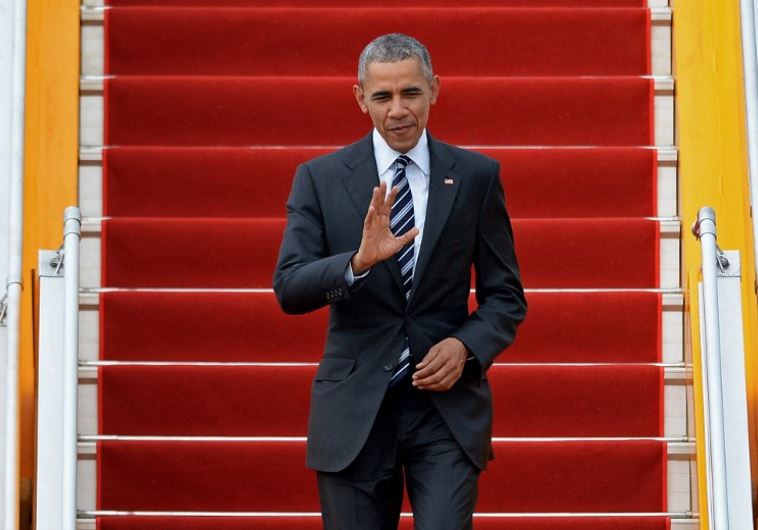ENCOUNTERING PEACE: The waiting game
No peace process nor peace agreement will be imposed on either the Israelis or the Palestinians.
 US President Barack Obama waves as he arrives at the Tan Son Nhat airport in Ho Chi Minh City(photo credit: AFP PHOTO)
US President Barack Obama waves as he arrives at the Tan Son Nhat airport in Ho Chi Minh City(photo credit: AFP PHOTO)